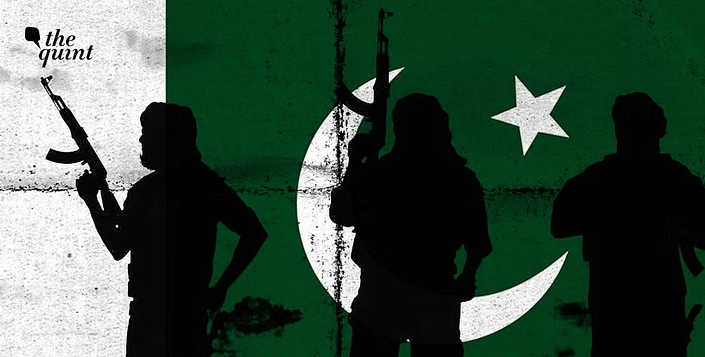
The country most infamous for the term ‘Surgical Strike’ i.e., Pakistan, has conducted its own. No, not against an enemy it had promised to wage ‘thousand years war’ or ‘bleed with a thousand cuts’ i.e., India – but against a ‘brotherly country’ or purportedly its ‘inseparable brother’ – Afghanistan!
Irony dies a thousand deaths, as Afghanistan is now ruled by Pakistan’s homegrown creation of the ‘Taliban’ which was genealogically seeded, nurtured, and unleashed by Islamabad to take over Kabul.
The current supreme leader of Afghanistan, Hibatullah Akhundzada, had initially stayed in Quetta and then returned to the same after the first Taliban government fell in 2001.
The powerful Minister for Interior Affairs, Sirajuddin Haqqani, grew up in Miramshah in North Waziristan, Pakistan, and later attended Darul Uloom Haqqania seminary in Khyber Pakhtunkhwa. Literally, the third-in-command and Minister of Defense, Mullah Yaqoob, studied in seminaries in Karachi. Prime Minister Hasan Akhund too was part of the Quetta Shura.
It was a simplistic assumption, as the Taliban in their second coming (after the first tenure 1996-2001) were to come into their own rather soon, shedding all pretence of being anyone’s proxies.
In Islamabad’s language, that it had carried out, “intelligence-based anti-terrorist operations”, brought unprecedented deterioration and escalation of violence. The target was the elements of the Hafiz Gul Bahadur Group who were ostensibly responsible for the “death of hundreds of civilians and law enforcement officials”.
The action also does not benefit the perceptions of Pakistan within Afghanistan. Clearly, the Pakistani action had the ‘green signal’ of the Pakistani Army Chief, Asim Munir, and of the new Pakistani government signalling a starkly different equation that besets the Af-Pak realm, from the one in the times of ‘Taliban Khan’ (Imran Khan).
The pressures for Pakistan to act were indeed mounting with repeated ‘terror attacks’ on the Pakistani State from forces across the Durand Line. The upping of the ante in terms of the controversial repatriation/pushback of Afghan refugees back to Afghanistan had not been an effective deterrent. Finally, Pakistan decided to walk the talk of cross-border operation and retaliation that it had been threatening for long.
Ultimately, this Pakistani action is also an unequivocal expression of its exposed ‘Strategic Depth’ ambition in Afghanistan, and its patently duplicitous stand on ‘terror nurseries’, even when it had supposedly joined the ‘War on Terror’.
Now, a redux of Frankenstein’s monster ensues. It eerily harks back to the well-intentioned advice by the then Secretary of State, Hillary Clinton, who had warned the incautious Pakistanis, “Snakes in your backyard, will not just bite the neighbours”, as the implicit “snakes” are now biting back the hand that bred the same once.
Hafiz Gul Bahadur is a typical Pakistani story of a Pashtun who was educated in a madrasa in Multan, affiliated with the Jamiat Ulema-e-Islam-Fazal (JUI-F) political party.
Like most of the Pakistani ISI-supported mujahideens, he fought against the Soviets in the 80s, and the West-supported forces in the 90s. He was even part of the pro-Pakistani Haqqani Network but soon found himself against the Pakistani ‘establishment’ as it pursued a cleansing drive against ‘foreign’ militants within North Waziristan. Yet again, he struck a truce deal with the Pakistanis and joined the larger Tehrik-e-Taliban Pakistan (TTP) as its first deputy.
As is his wont, he flip-flopped in his commitments to both the TTP and Pakistan to carve out his outfit i.e., Muqami Tehrik-e Taliban.
Today, his angst is directed at Islamabad as it perceives the Pakistani State as the oppressor of its tribal/regional identity and rights and hence, attacks the same. Whereas Kabul which has its own axe to grind and pride to protect against the interfering Pakistani hand, protects forces like the TTP or militias loyal to Hafiz Gul Bahadur.
In the melee, Afghan animus against Pakistanis deepens and the future augurs even more bloody across the invisible and the unaccepted Durand Line.







